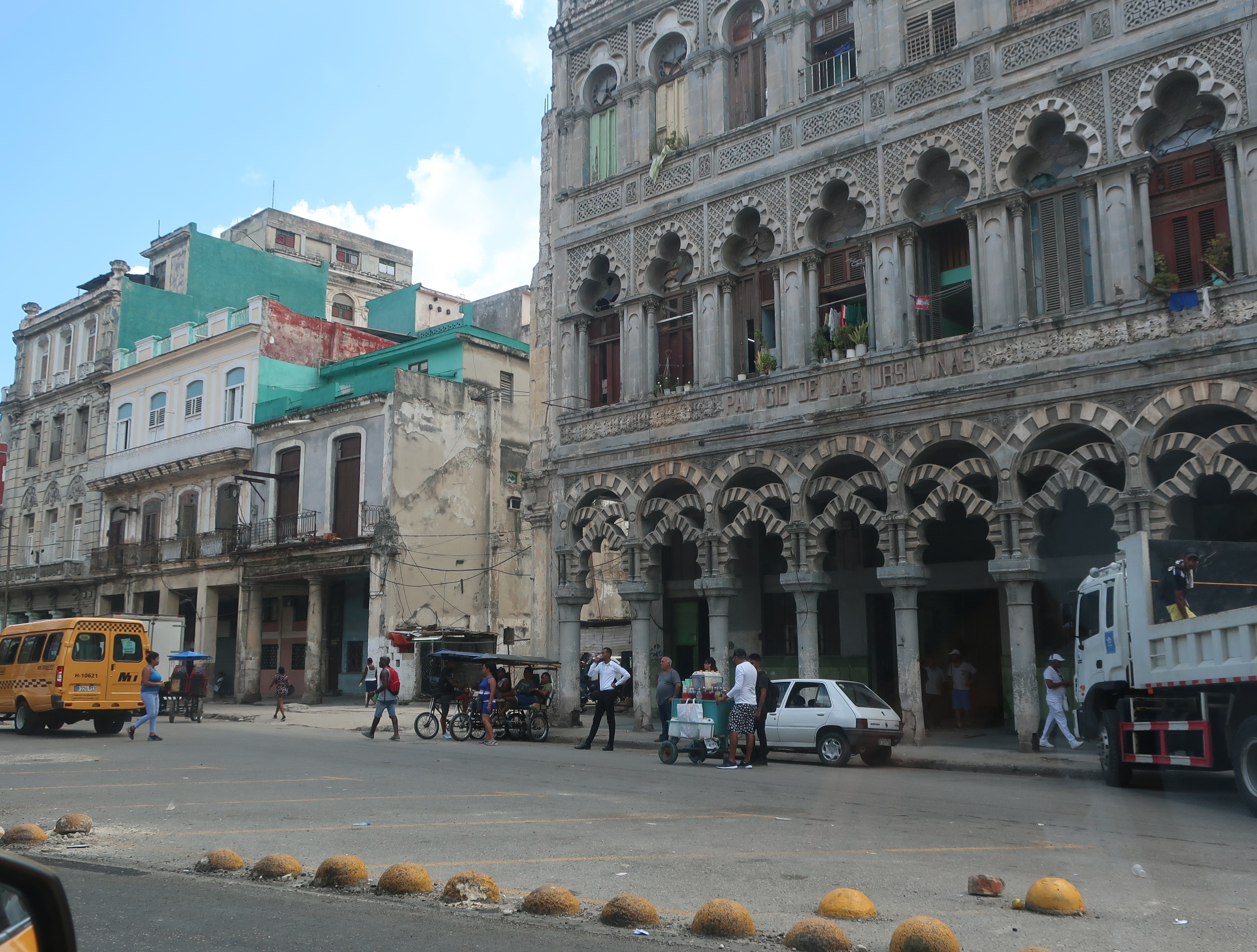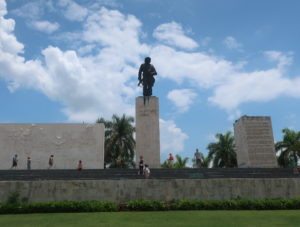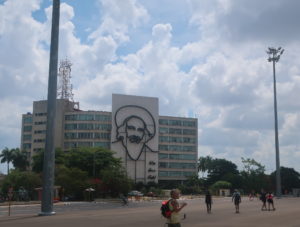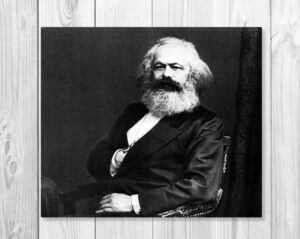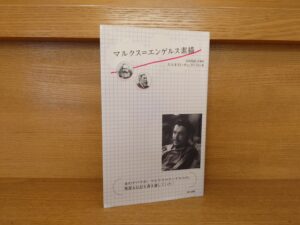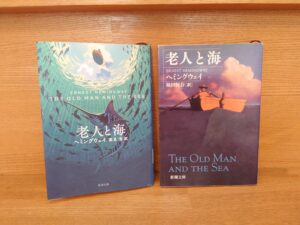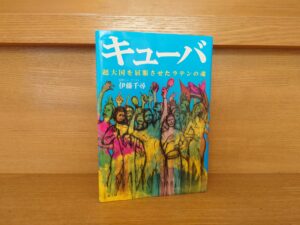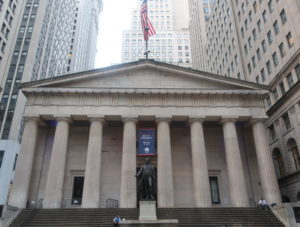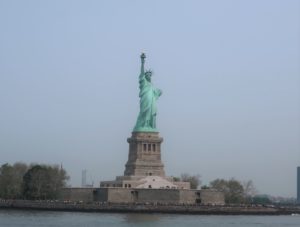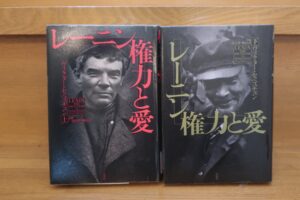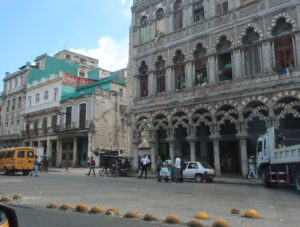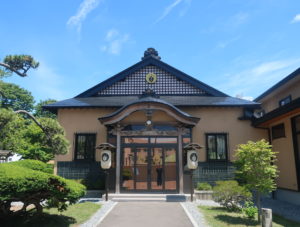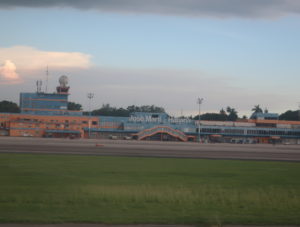目次
共産主義と資本主義、そして宗教のつながり~ぼくがキューバを選んだ理由 僧侶上田隆弘の世界一周記―キューバ編⑥
ここまで4本の記事にわたってキューバの歴史をお話ししてきたが、みなさんの中には次のような疑問をお持ちになった方もおられるかもしれない。
「なぜいきなりキューバの歴史をここまで話し出したのだろう。
いや、そもそもなぜキューバ?キューバと宗教って何か関係はあるの?」と。
たしかにキューバは宗教の聖地ではない。
だが、ぼくにとっては宗教を学ぶ上で非常に重要な国がキューバだったのだ。
今回の記事ではその「なぜ僕が宗教の聖地でもないキューバを選んだのか」ということについてお話ししていきたい。
ぼくが最初にキューバに興味を持ったきっかけはキューバ危機だ。
世界の歴史が完全に違う方向に行きかねなかった世紀の大事件とそれを引き起こした米ソ冷戦。
もちろん1990年生まれのぼくには当時のことはまったくわからない。
だが、わからないからこそ冷戦時の世界の在り方にぼくは興味を持っていた。
ソ連が崩壊した今とはまったく違った世界観や考え方が当時はあった。
冷戦構造が世界に与えた影響は計り知れないだろう。そしてぼくが生きている今日の世界もその歴史の上に成り立っている。
すべての歴史を知ることはできなくとも、冷戦の緊張感を学ぶにはキューバ危機が最も適しているのではないかとぼくは思い、キューバを学び始めたのだった。
そしてそのような流れでキューバを学んでいる内に、ぼくの知っていたキューバ像とは全く違ったキューバがぼくの目の前に現れてきた。
それまで抱いていた危険な共産主義独裁国家というイメージがどんどん崩れていく。
またそれと同時にアメリカという国家についてのイメージも変わっていくことになった。
平成2年生まれのぼくにとっては資本主義の世界というのは当たり前のものだった。
だが、キューバはぼくにとっての当たり前の世界とはまるでちがう世界観、価値観を持って生きていたのだ。
どうやら資本主義、共産主義という2つの在り方はそれを生きる人々の世界観や価値観を丸ごと変えてしまう代物らしい。
考え方だけではなく物質的な面でもその違いは顕著に現れる。
建物も違えばそもそも物量が違う。資本主義陣営の繁栄は検証するまでもなく圧倒的だ。物であふれた世界がそこにはある(それがいいか悪いかは別として)。
だがそもそも資本主義、共産主義の「〇〇主義」とは一体何なのだろうか。
先の記事でも少し触れたが共産主義とは経済活動が成熟し、資本家が労働者を搾取する悲惨な状況を革命によって打ち倒して平等な理想社会を実現することを目的とするものだ。
それに対し資本主義は経済の自由競争によって理想の世界が生まれてくるという考え方だ。
もちろんある程度の規制によって行き過ぎた搾取がないように国家のコントロールも前提とされているが、基本的には自由競争だ。
さてものすごくざっくりとではあるが共産主義と資本主義とは何かを考えてみた。(※2024年6月追記 共産主義と資本主義をこのようにあまりにざっくりとまとめるとはなんと恐ろしいことをしたのだと今は感じている。5年前の未熟な私だということでご容赦頂けたら幸いだ)
共産主義とは平等なユートピアを理想とする。
資本主義は自由な経済活動による繁栄を理想とする。
さて、ここで重要なことは共産主義、資本主義共に「理想の世界を描いている」ということだ。
その理想の世界を実現するために革命や社会統制、あるいは自由競争などの道筋が引かれている。
そしてさらにその下に個々の人間ひとりひとりが何をすべきで、どうすれば「いい人間」として認められるのかということがずらっと並びたてられているのだ。
つまり共産主義、資本主義の「〇〇主義」とは理想の世界、ユートピアを信じ、それに向かって生きていくことを表すのだ。
抽象的な理想、概念を多数の人間が同じように信じること。
実はこれこそ、人間(ホモ・サピエンス)とチンパンジーを分ける最大の違いなのだ。
このことについて日本でもベストセラーになったユヴァル・ノア・ハラリの『サピエンス全史』では次のように述べている。
一対一、いや十対十でも、私たちはきまりが悪いほどチンパンジーに似ている。
重大な違いが見えてくるのは、一五〇という個体数を超えたときで、一〇〇〇~二〇〇〇という個体数に達すると、その差には肝を潰す。
もし何千頭ものチンパンジーを天安門やウォール街、ヴァチカン宮殿、国連本部に集めようとしたら、大混乱になる。
それとは対照的に、サピエンスはそうした場所に何千という単位でしばしば集まる。サピエンスはいっしょになると、交易のネットワークや集団での祝典、政治的機関といった、単独ではけっして生み出しようのなかった、整然としたパターンを生み出す。
私たちとチンパンジーの真の違いは、多数の個体や家族、集団を結びつける神話という接着剤だ。この接着剤こそが、私たちを万物の支配者に仕立てたのだ。
※一部改行しました。太字は上田隆弘による
ユヴァル・ノア・ハラリ『サピエンス全史 上』柴田裕之訳 河出書房新社 P56
人間は抽象的な理想、つまり神話があるからこそ大きな集団として結びつくことができるのだ。
逆に言えばそれができなければ人類はここまで発展することなく、厳しい環境下の中絶滅していたかもしれない。
ぼくがこの旅を志したのも人間がどのように進化し宗教が生まれてきたのかという興味からだった。そのことはタンザニア編の記事でもお話しした。
共産主義も資本主義も理想の世界を描き、それを信じるものだった。
そう、宗教と「〇〇主義」には実は共通点がある。
「宗教はアヘン」と言い切った社会主義も実は宗教的な要素をはらんでいるのだ。
ユートピアという抽象的な理想郷を創造し、そしてそこにたどり着くための道筋を描き、個々人のあるべき生き方も規定する。
これは宗教の在り方と実に似ている。
神が存在し世界の秩序を創りあげ、天国にいくために人々は何をすべきかが示される。
理想の世界を信じ、突き進むというあり方は広く宗教に見られる道筋だ。
これがあるからこそ人間は巨大な集団を作り上げ、急激な発展を遂げることができたのだ。
人類の発展には抽象的な理想、つまり宗教と神話が不可欠だったのだ。
資本主義もその例外ではない。
お金、つまり信用を基にした社会システムと自由競争で世界は成り立つという共同理念があるからこそぼくたちは円滑に生活することができているのだ。
その中にいると意識はできないが、実はぼくたちも無意識に資本主義を信じて生きている。
そしてその資本主義が提供する理想への道筋や理想の人間像をぼくたちは摂取して生きている。
勤勉に働くこと、お金をたくさん稼ぐこと、自分らしく生きること。
それは人類共通の美徳ではない。
それはあくまで資本主義という神話が語る理想の生き方に過ぎないのだ。
キューバが信じている共産主義では必ずしもそれらは美徳とは言えるものではない。
宗教がひとりひとりの世界観や価値観、理想の人間像までも規定していく。
これは宗教を学ぶぼくにとっては非常に興味深い問題だった。
特にキューバはそれを学ぶ上で絶好の機会となった。
というのも、キューバは今転換期を迎えている。
これまでお話ししてきたように、ソ連の崩壊後、観光業に力を入れたことで大量の資本がキューバに流れ込んできている。
これは単にお金がたくさん入ってきたということで済まされる問題ではない。
それまで共産主義の理想を生きてきた社会の中に突如資本主義の理想がなだれ込んでくることに他ならないのだ。いわば理想と理想の衝突、そしてそれらが混じり合う混沌が出現したのだ。
ここまでお話ししてきたキューバという国をもう一度考えてみたい。
みんな平等に貧しかったからこそのおおらかさというものがあったのだ。
しかしもしそこに突然貧富の差が生まれたらどうなるのだろうか。
隣の家が急にお金持ちになり、自分はますます貧しくなっていく。
そうなってしまった時にキューバの人たちはどうなっていくのだろうか。
これまでと同じ陽気で仲良しなキューバのコミュニティは存続することができるのだろうか。
それは誰にもわからない。
まさに今それがキューバで試されているところなのだ。
ぼくが4本にわたってキューバの歴史についてお話ししたのもそのような流れを伝えたかったからに他ならない。
ぼくがキューバについて感じたことをこれからお話ししていくためには、キューバとはどんな国でどんな歴史を経てきたのかということが必要不可欠なものだったのだ。
資本主義の殿堂たるアメリカと共産主義国家キューバ。
ぼくにとってアメリカからキューバへと向かうというこの一連の流れは決定的に重要なものだったのだ。
資本主義と共産主義を学ぶことは宗教を学ぶに等しい。
見えにくい事実であるがどちらも意図的に他の宗教を排し、無宗教のように装ってはいるが実は宗教のエッセンスをふんだんに利用しているのだ。
もちろん、ここまで述べてきたような人類を結びつける役割が宗教の唯一の本質だというつもりはない。
ぼくが言いたいのは人を結びつける役割も宗教の大事なひとつの側面だということだ。
そもそも宗教は、「宗教とは〇〇だ」というようにひとつのもので定義できるようなものではない。あまりに広大な領域にまたがるため唯一の定義など存在しないのだ。
あくまでそのひとつの側面として宗教が人を結びつける役割、理想の世界を提供し人々の生き方を規定するという役割にぼくは惹き付けられ、この旅が始まったのだ。
さて、いよいよ次の記事から本格的にキューバの旅行記を始めていく。
最初の目的地はチェ・ゲバラゆかりの地サンタクララだ。
続く
次の記事はこちら
あわせて読みたい
サンタクララのチェ・ゲバラの霊廟とドン・キホーテの意外な関係 キューバ編⑦
サンタクララはチェ・ゲバラと切っても切れない関係のある街。
キューバの歴史を学ぶ中で知ることになったチェ・ゲバラの存在。
理想を追い求めた革命の戦士。 世界で最も尊敬される革命家。
どうして彼はこんなにも世界中の人を惹き付けるのでしょうか。
彼のことを調べているうちに、私はあることを知ることになりました。
チェ・ゲバラの愛読書が『ドン・キホーテ』であり、彼はドン・キホーテの生き様に大きな影響を受けていたという事実だったのです。
この記事ではそんなゲバラと『ドン・キホーテ』の関係とゲバラのお墓参りをした私の体験をお話ししていきます。
前の記事はこちら
あわせて読みたい
カストロの改革とソ連崩壊後のキューバ~キューバの歴史を解説⑷ キューバ編⑤
前回の記事「革命政権とミサイル危機~キューバの歴史を解説⑶ キューバ編④」でお話ししましたが、1962年、キューバ・ミサイル危機で世界は破滅までぎりぎりのところでなんとか踏みとどまることができました。
アメリカはキューバへの軍事侵攻計画を取り止め、ソ連はミサイル基地を撤去するという合意の下それは速やかに実行されました。
世界中の人々は安堵のため息をついたところでしたが、キューバからすれば煮えきらないものが胸の内に残ることとなりました。この記事ではそんなキューバのその後の展開についてお話ししていきます。
関連記事
あわせて読みたい
マルクス主義者ではない私がなぜマルクスを学ぶのか~宗教的現象としてのマルクスを考える
マルクスは宗教を批判しました。
宗教を批判するマルクスの言葉に1人の宗教者として私は何と答えるのか。
これは私にとって大きな課題です。
私はマルクス主義者ではありません。
ですが、 世界中の人をこれだけ動かす魔力がマルクスにはあった。それは事実だと思います。 ではその魔力の源泉は何なのか。 なぜマルクス思想はこんなにも多くの人を惹きつけたのか。 そもそもマルクスとは何者なのか、どんな時代背景の下彼は生きていたのか。 そうしたことを学ぶことは宗教をもっと知ること、いや、人間そのものを知る大きな手掛かりになると私は思います。
あわせて読みたい
チェ・ゲバラ『マルクス=エンゲルス素描』あらすじと感想~ゲバラはマルクス主義に何を思う?あのゲバ...
この作品はチェ・ゲバラのマルクス主義に対する立場がどこにあるかが非常に重要なポイントです。
まず、私たちはマルクス主義というとソ連を思い浮かべてしまいますが、ゲバラからするとソ連式マルクス主義は本来のマルクスから歪められているように見えていたようです。ソ連は硬直した官僚主義になっており、その実態はゲバラの理想とするマルクス主義とは異なっていました。
この記事ではゲバラがマルクス主義をどう考えていたか、そしてそれに対して私が何を思うのかをお話ししていきます
あわせて読みたい
ヘミングウェイ『老人と海』あらすじ解説と感想~ノーベル文学賞を受賞した名作!キューバといえばこの作品
『老人と海』はヘミングウェイがピューリッツァー賞やノーベル文学賞を受賞することになった代表作で、キューバを愛したヘミングウェイの最高傑作として知られています。
この記事では新版の高見浩訳を中心にお話ししていきますが、解説の充実度、読みやすさ、表紙デザインなどの総合力で見るなら高見浩訳、シェイクスピアファンであるならば旧版の福田恆存訳をおすすめしたいです。
あわせて読みたい
伊藤千尋『キューバ 超大国を屈服させたラテンの魂』あらすじと感想~キューバの歴史を知るのにおすすめ...
この本を読んでいると驚くことばかりでした。普段キューバという国についてほとんど情報が入ってくることがない私たちです。せいぜい野球が強いというイメージくらいでしょうか。そこにキューバ危機や独裁者カストロというイメージしかない私たちにとってこの本で語られることはそれこそ仰天ものです。イメージと全く逆の世界がここにあります。
この本を読めばアメリカに対する思いもきっと変化すると思います。
アメリカ側からだけの情報ではなく、キューバ人にとってアメリカはどういう国だったのかということを知ることができるのもこの本の素晴らしい点だと思います。
あわせて読みたい
三好徹『チェ・ゲバラ伝』あらすじと感想~キューバ革命を代表する革命家の生涯と思想を知るのにおすす...
私が『ドン・キホーテ』を読もうと思ったのはゲバラのおかげです。「ゲバラほどの男が愛していた『ドン・キホーテ』は一体どんなにすごい本なのだろう」、そう思ったからこそ私は『ドン・キホーテ』に初めて手を伸ばしたのです。
今では『ドン・キホーテ』は私のライフワークのようなものになっています。この作品は一生読み続けていくことでしょう。
私にとってチェ・ゲバラという存在は私とドン・キホーテを繋いでくれた大恩人なのでありました。
その大恩人のことを知れる素晴らしい伝記が本作『チェ・ゲバラ伝』になります。
あわせて読みたい
キューバの成立とスペイン統治時代~キューバの歴史をざっくり解説⑴ キューバ編②
みなさんはキューバといえばどんなイメージを抱くでしょうか。
おそらく、社会主義だったりキューバ危機だったりカストロの独裁だったりと、どちらかというと恐い国というイメージが浮かんでくるのではないでしょうか。
私もこの国のことを学ぶまではそのようなイメージを抱いていました。しかし、キューバ=危険な国というイメージは正確には正しくありません。キューバが危険な独裁国家であるというのは単なるイメージに過ぎないのです。
その実像は私たちが持つイメージとはかなり異なります。
今回の記事ではざっくりとではあるがキューバの歴史をもとにその実像に迫っていきます。
あわせて読みたい
アメリカ植民地時代とキューバ革命~キューバの歴史を解説⑵ キューバ編③
前の記事「キューバの成立とスペイン統治時代~キューバの歴史をざっくり解説⑴ キューバ編②」では1902年にキューバがスペインから独立したものの、アメリカの半植民地と化してしまったところまでお話ししました。
今回の記事ではそこからキューバがアメリカと戦い、真の独立を果たすまでの歴史をお話ししていきます。
あわせて読みたい
革命政権とミサイル危機~キューバの歴史を解説⑶ キューバ編④
この記事ではキューバ革命直後からのキューバ史をざっくりとお話ししていきます。
当然ですが、革命は政権を打倒して終わりではありません。奪取した政権をこれから維持し運用していかなければなりません。指導者カストロはいきなり難しい立場に立たされることになりました。
その結果があのキューバ危機です。この記事ではそのキューバ危機までの流れを見ていきます。
あわせて読みたい
カストロの改革とソ連崩壊後のキューバ~キューバの歴史を解説⑷ キューバ編⑤
前回の記事「革命政権とミサイル危機~キューバの歴史を解説⑶ キューバ編④」でお話ししましたが、1962年、キューバ・ミサイル危機で世界は破滅までぎりぎりのところでなんとか踏みとどまることができました。
アメリカはキューバへの軍事侵攻計画を取り止め、ソ連はミサイル基地を撤去するという合意の下それは速やかに実行されました。
世界中の人々は安堵のため息をついたところでしたが、キューバからすれば煮えきらないものが胸の内に残ることとなりました。この記事ではそんなキューバのその後の展開についてお話ししていきます。
あわせて読みたい
「インバウンド頼みのキューバの現状と格差、教育問題」日本も他人事ではない! キューバ編⑫
「キューバにはいいところも悪い所もあります。いいところは教育と医療システムのすばらしさです。私もハバナ大学を6年、日本留学も1年しました。すべてタダです。誰にでも学ぶチャンスがあることはすばらしいことです。ですが現在のキューバには深刻な問題があります。経済と観光の問題です。」
現地ガイドはこう切り出し、私にキューバの厳しい現状を語ってくれました。観光業によって経済を成り立たせようとするあまり国の基盤が崩れかかっている恐ろしい現実をこの記事ではお話ししていきます。そしてこれは日本も全く他人事でありません。私はガイドの話を聞き戦慄を覚えたのでありました。
あわせて読みたい
資本主義教の神殿ニューヨーク・フェデラルホールとウォールストリート アメリカ編①
20日間かけて周遊したスペインともいよいよお別れ。
次に向かうはアメリカ、ニューヨーク。
まず向かうのはウォール街。 私がニューヨークで1番見たかったもの、フェデラルホールもそこにあります。1789年、まさしくその場所でジョージ・ワシントンがアメリカ合衆国初代大統領に選出され、就任演説を行いました。
いわばアメリカ合衆国建国の象徴であり、アメリカの自由と平等という理想がこの建物に込められています。ここを訪れる観光客でそのことを考えている人はほとんどいないかもしれません。
しかしアメリカの歴史や思想を知る上で、この神殿のような建物とワシントンの像がここウォールストリートにあるという意味は見逃せないことだと思います。
あわせて読みたい
マックス・ヴェーバー『プロテスタンティズムの倫理と資本主義の精神』~宗教と経済のつながりを考える...
今回の記事では「もしこの資本主義の殿堂たるウォールストリートの成り立ちに宗教が関わっていたとしたら?」というテーマでお話ししていきます。
この記事で参考にするのは宗教と経済のつながりに関する論考として最も有名な著作である、1905年に発表されたマックス・ヴェーバーの『プロテスタンティズムの倫理と資本主義の精神』という本です。
あわせて読みたい
アメリカ旅行記おすすめ記事一覧~資本主義の中心、そして実は宗教的な国アメリカ!【僧侶上田隆弘の世...
僧侶が見たアメリカという視点はきっと皆さんにとっても新鮮なものであるのではないかと思います。観光やビジネスで知るアメリカ像とはかなり違ったアメリカが以下の記事では語られます。必ずや面白い発見や驚きがあることでしょう。
あわせて読みたい
キューバ旅行記おすすめ記事一覧~クラシックカーが走る陽気な社会主義国家を訪ねて【僧侶上田隆弘の世...
私の世界一周の最後の国、キューバ。
色んな意味でこの国は規格外。自分とはまったく違う世界があるということを実感した国でした。
おそらく私が行った国の中で最もカルチャーショックを受けたのがこのキューバでした。あまりに違い過ぎて混乱しましたが、それも楽しい体験でした。
あわせて読みたい
(1)なぜ今レーニンを学ぶべきなのか~ソ連の巨大な歴史のうねりから私たちは何を学ぶのか
ソ連の崩壊により資本主義が勝利し、資本主義こそが正解であるように思えましたが、その資本主義にもひずみが目立ち始めてきました。経済だけでなく政治的にも混乱し、この状況はかつてレーニンが革命を起こそうとしていた時代に通ずるものがあると著者は述べます。だからこそ今レーニンを学ぶ意義があるのです。
血塗られた歴史を繰り返さないためにも。
